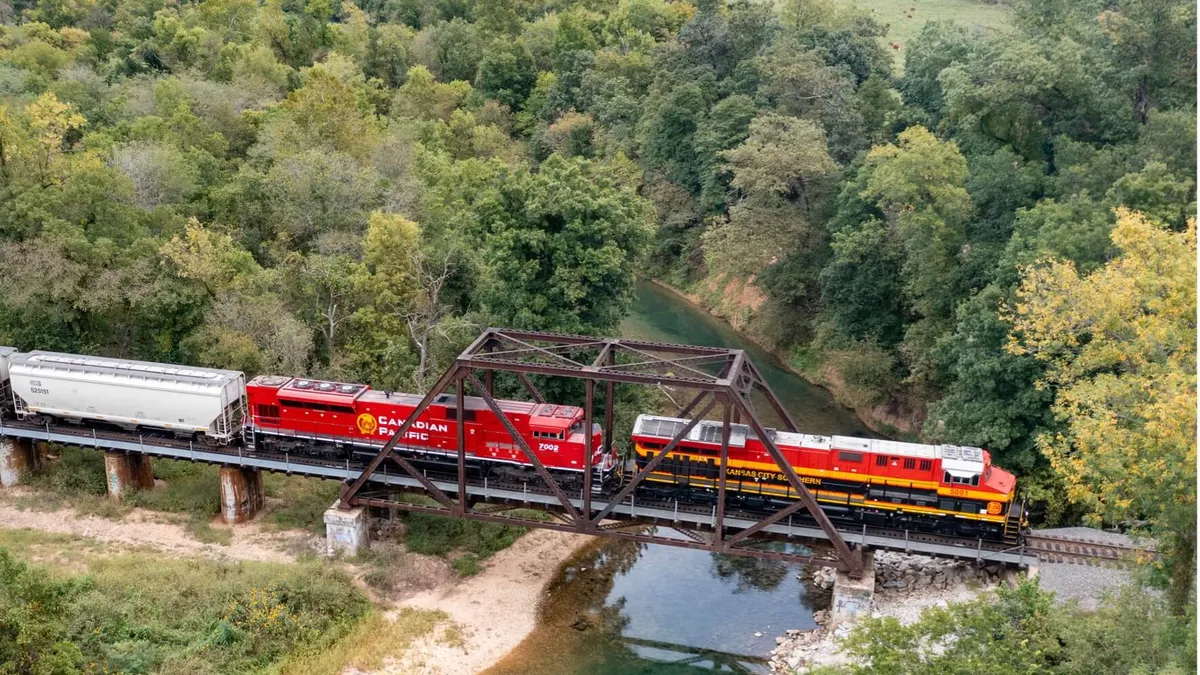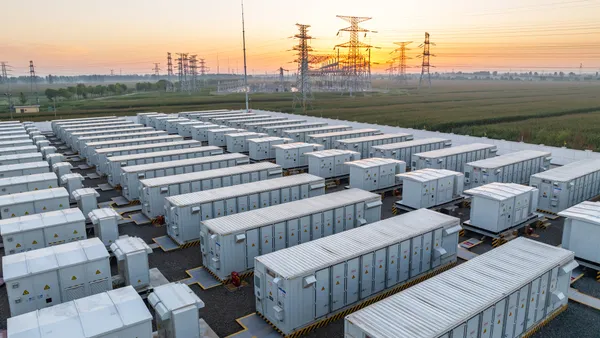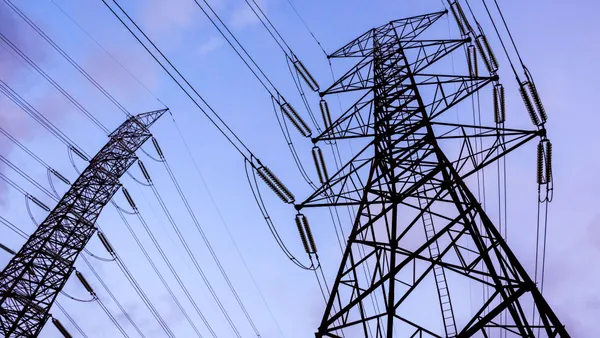Dive Brief:
- If electric batteries become more common on the nation's freight rail lines, researchers at the Lawrence Berkeley National Laboratory suggest those batteries could be called upon to deal with spikes in energy demand.
- The infrastructure already exists to connect those trains to the power grid, the researchers said. And the mobility of trains gives them more flexibility to respond to extreme weather.
- Using trains with batteries to provide backup power could reduce the cost of new transmission lines and other infrastructure upgrades, the study says.
Dive Insight:
Reliability is a looming problem as the nation's power grids depends more on wind and solar. In a recent study published in the journal Nature Energy, researchers at Berkeley Labs said the country's freight rail lines are a potential way to provide that reliability
Rail companies looking to decarbonize their trains are starting to experiment with train car sized batteries that can store a GWh of electricity, the study said.
"While we were doing research on trains we realized how extensive the rail line is and how much it can carry," said Amol Phadke, a staff scientist and engineer for Berkeley Labs who co-authored the study. "Well, you can actually use this rail network and these improved batteries as backup power.”
If this technology becomes ubiquitous, researchers at Berkeley Labs say power can be drawn from those batteries when demand spikes during a heat wave or a period of extreme cold. Those weather events are expected to become more common as the planet warms.
As cars and appliances are increasingly electrified to reduce fossil fuel emissions, more transmission lines will be needed to keep those vehicles and appliances running.
"What we found was that you could use the rail network to provide a significant amount of backup power cost effectively during the events of power crisis," Phadke said.
Rail car batteries can't replace needed infrastructure like new transmission lines, but it can reduce the cost of building that infrastructure by ensuring that power grids have enough backup electricity.
Power from railroads would still need to be supplemented from other sources, researchers stressed. But mobility gives train batteries an advantage over other forms of backup power because those batteries can be moved from city to city.
"The rail industry has enormous capacity to carry weight and we have a very extensive network," Phadke said.
Cities generally have several days notice before a heat wave or period of bitter cold, giving officials the time to move batteries when necessary, he said.
"Extreme weather events are long lasting and are predictable in advance," Phadke said.














